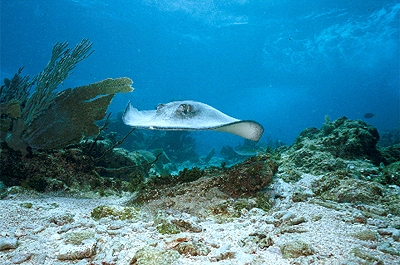PRESS RELEASE
29th April, 2013
Australia and Belize might seem worlds apart, but when it comes to coral reefs there is much in common. A key challenge faced by both countries is how to encourage economic development in ways that don’t reduce marine biodiversity. This is the focus of a three-day workshop in Belize City 7-9 May.

Coral reef managers, scientists and policymakers will come together to review best-practice approaches to biodiversity offsetting, which can help developers and regulators design projects that deliver social and economic benefits while ensuring no overall loss of biodiversity.
“Biodiversity offsets are emerging as an important strategy internationally, but most of the work to date has focused on land-based biodiversity”, explains Minister Lisel Alamila, Minister with responsibility for the environment. “This workshop will not only help chart a more sustainable path for Belize, but will also make a valuable contribution to international best practice.
“We are currently tackling similar issues in Australia”, says Dr Paul Marshall from the Great Barrier Reef Marine Park Authority. “It is a wonderful opportunity to share experiences and collaborate on a issue of such importance to the future of coral reefs and coastal communities.”

Coral reefs are at the centre of the Caribbean economy with tourism, fishing and shoreline protection coral reefs generating over $4 billion to the economy; the value of reef and mangrove-related fisheries, tourism and shoreline protection services to Belize is estimated to be US$395-$559 million per year.
However, for decades these reefs have faced pressure from unsustainable fishing, pollution and coastal development that has weakened their overall health.

Belize, like most of the Caribbean region, urgently needs development opportunities. But these must be done in a way that doesn’t undermine the fundamental basis for the region’s prosperity – its natural resources like coral reefs coastlines, says Minister Alamila, Minister for Forestry, Fisheries and Sustainable Development.
“This project is a key element in our efforts to implement the Regional Framework for Development Resilient to Climate Change”, explains Caribbean Community Climate Change Centre Executive Officer Dr Kenrick Leslie. “We are proud to be supporting this project, which is part of the Australian Government’s support to the region”.


